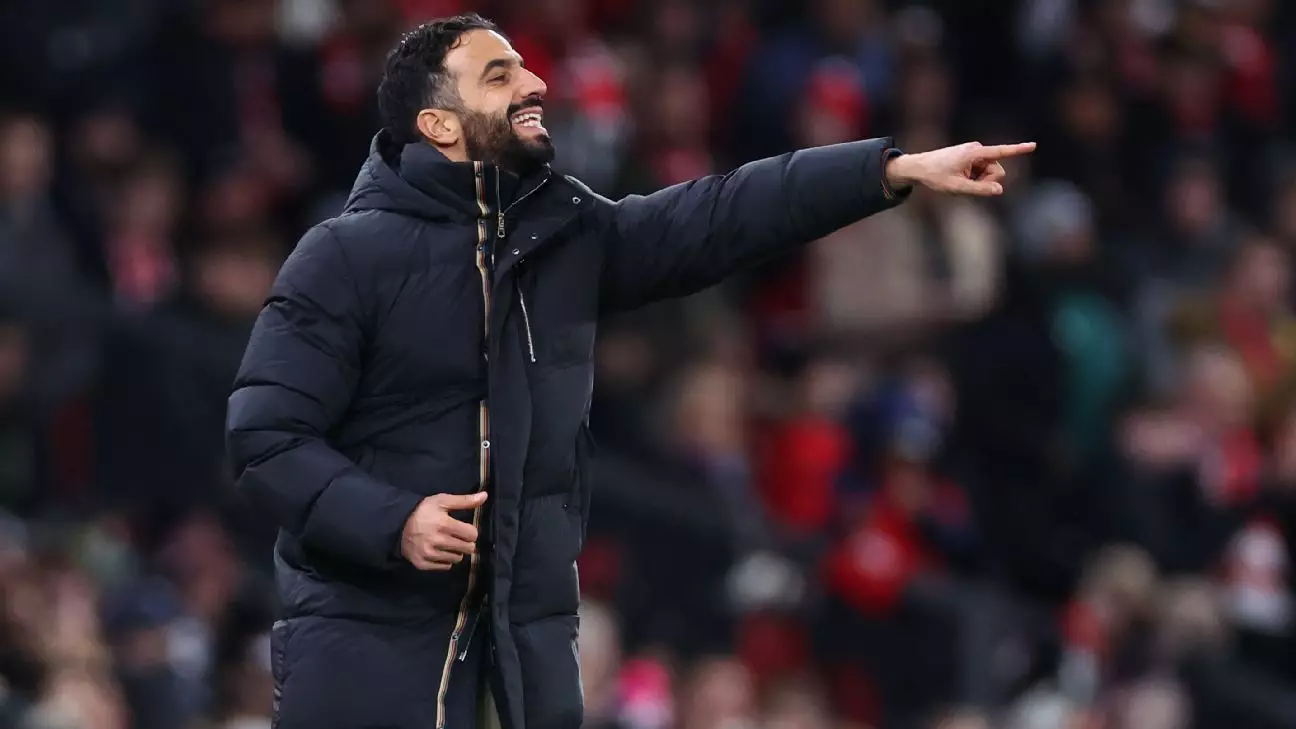Ruben Amorim’s tenure as Manchester United’s head coach has undoubtedly begun on a challenging note. Following a narrow 3-2 victory against Bodo/Glimt in the Europa League, the former Sporting CP manager has expressed feelings of anxiety and nervousness regarding his team’s adaptation to his tactical systems. His admission underscores the psychological burden that often accompanies the role of a top-flight manager, particularly when facing uncertainty with a new squad. These emotions reflect his deep commitment to achieving success but also highlight the difficulties inherent in molding a team under time constraints.
Amorim’s lack of familiarity with his players has compounded his struggles. Transitioning into a managerial position requires establishing rapport and understanding individual capabilities—a task made more difficult when a manager is both new to a club and the players are unaccustomed to his style. The Portuguese coach pointed out, “I don’t know the players and we have not worked a lot together,” showcasing the inherent challenge in aligning his vision with the abilities and patterns of play exhibited by the team. This lack of cohesion has led to an unpredictable performance on the pitch, as evidenced by the early goal concessions and fluctuating dominance during matches.
Against Bodo/Glimt, he implemented several changes to the starting lineup, introducing six new players compared to his debut game against Ipswich. This approach, while risky, proved essential in shaking off the cobwebs of earlier performances. Amorim recognized the need for adaptation, observing that his squad showed improvement in ball quality, yet he is vigilant against overextending his players. “We will have to change players against Everton,” he stated, indicating his awareness of the physical demands placed on his squad.
The upcoming fixture against Everton presents its own set of challenges. The manager’s decision-making will be scrutinized as he balances the need for rotation with maintaining a competitive edge. The potential for fatigue among key players further complicates this scenario, and Amorim’s ability to manage squad rotation effectively will be crucial for sustaining momentum.
As Amorim adjusts to life in the Premier League, the road ahead appears fraught with obstacles. His candid reflections reveal a coach navigating the complexities of modern football, where tactical acumen must be complemented by an astute understanding of player fitness and morale. The anxiety he feels is a natural response to the pressure of leading a prestigious club like Manchester United, but it also serves as a reminder of the balancing act every coach must perform. In mastering both the tactical and emotional aspects of management, Amorim will ultimately determine his legacy on this storied stage. The fans and stakeholders will be observing closely as he strives to turn unease into confidence in his evolving journey with the team.

